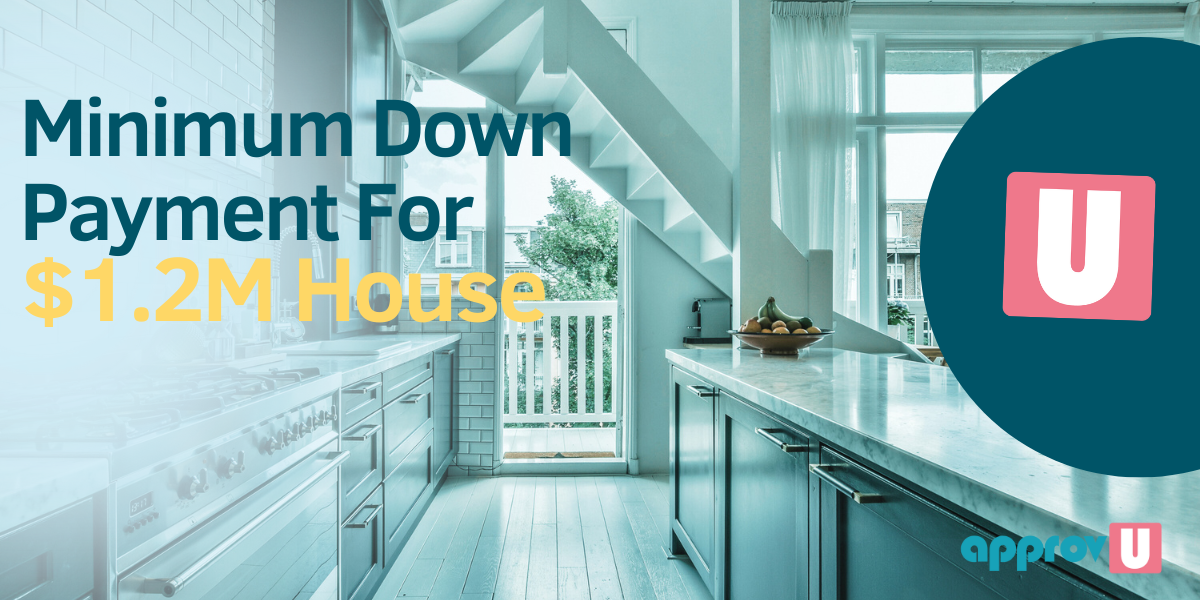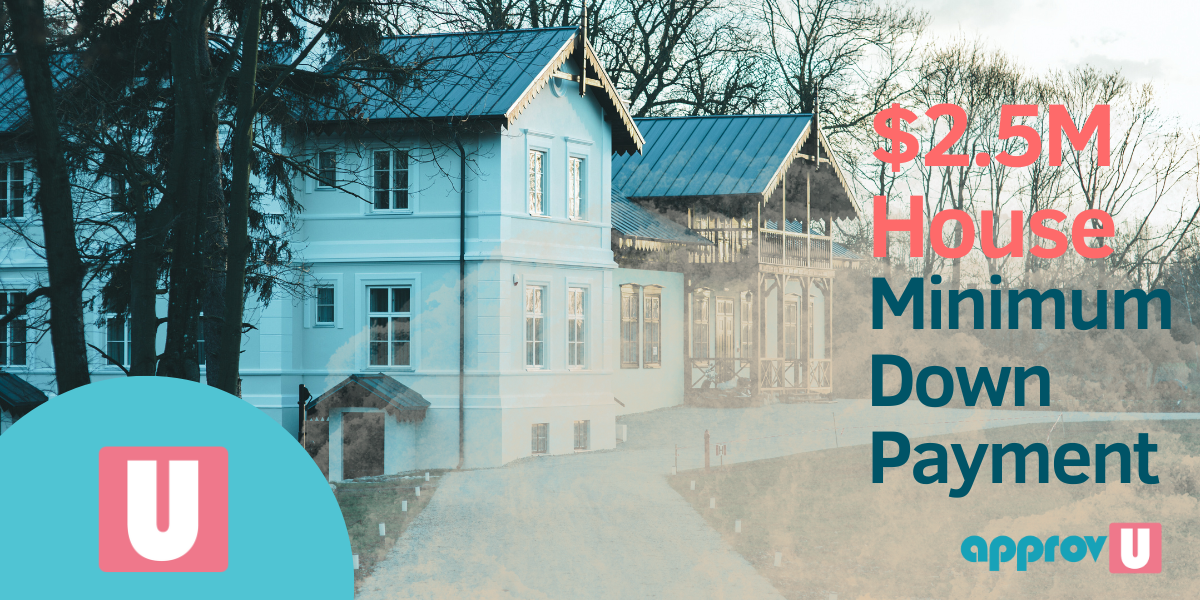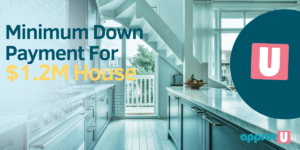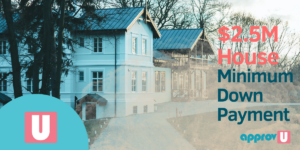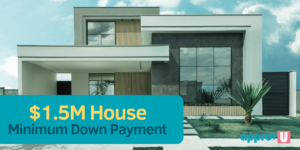When considering refinancing your mortgage, weighing the potential benefits and drawbacks is essential.
While refinancing can result in lower monthly payments, longer amortization periods, and cash access, it’s critical to recognize that it may not always be the best financial decision.
There are several reasons why mortgage refinances might not be the right choice. Including a long payback period, the possibility of refinancing into a higher interest rate, high closing costs, and plans to sell your home soon.
In this article, we’ll explore these reasons in detail to help you decide whether refinancing your mortgage is the right choice for you.
What is Mortgage Refinance?
When you refinance your mortgage, you’re getting a new loan to pay off your existing mortgage.
This allows you to take advantage of lower interest rates and monthly payments.
Mortgage refinance can also be a good option if you want to change the terms of your mortgage, such as switching from an adjustable-rate mortgage to a fixed-rate mortgage.
Many people in Canada refinance their mortgages to lower their borrowing costs and improve their financial situation.
By getting a lower interest rate, you can save a significant amount of money over the life of your loan.
If you decide to modify your mortgage terms, you may have a more manageable monthly payment. It’s important to weigh the pros and cons before deciding, but for many people, refinancing their mortgage can be a smart financial choice.
8 Reasons Why Refinancing Your Mortgage May Not Be A Good Idea
Before considering refinancing, it’s essential to understand the circumstances under which it may not be a wise financial decision. Here are some reasons to consider.
Extended Time for Return on Investment
Before deciding to refinance your mortgage, it’s crucial to consider the upfront costs involved.
Refinancing requires paying various fees, such as a lawyer, appraisal, title search, escrow, and lender fees. These expenses can add up and impact the overall cost of refinancing your mortgage.
The savings from refinancing may take several years to offset the upfront costs.
To determine your break-even point, divide the total cost of the refinancing by your monthly savings.
For example, if you paid $7,000 in closing fees to refinance into a mortgage that saves you $250 per month, it would take 28 months or more than two years and four months to break even.
Additionally, if you sell your house before reaching the break-even point, you may not fully realize the benefits of refinancing.
The Refinancing Costs Could Outweigh the Benefits
Refinancing your mortgage may cost you more in the long run.
This can happen if you choose to extend the amortization period of the new loan. It means you will pay interest on the loan balance for extended periods, leading to a higher overall cost.
While a lower monthly payment may seem appealing, it may not be worth the added cost in the long run.
Consider your financial goals and whether the benefits of refinancing outweigh the costs before making a decision.
The Interest Rate Environment
Additionally, refinancing could be a financial mistake if the current interest rates are higher than your current mortgage rate.
You would be taking out a new loan at a higher interest rate, increasing the cost of borrowing over the life of the loan.
This can add up to a significant amount of money over time and offset any benefits you may have received from refinancing.
Furthermore, refinancing into a new adjustable-rate mortgage could be risky if you have a fixed-rate mortgage and the interest rates have risen.
Adjustable-rate mortgages come with the risk of future interest rate increases, which could lead to much higher monthly payments.
Expensive Closing Fees
Refinancing your mortgage involves costs such as appraisals, origination fees, and other loan preparation charges.
These costs can range from 2% to 6% of your loan amount, which is a substantial amount of money.
If you need more cash, you may be tempted to add the closing fees to your loan or accept a higher interest rate to avoid paying them upfront.
However, this could reduce the savings from refinancing as you’ll now be paying interest on those fees, making the process costlier in the long run.
Selling Your Home Soon
If you have plans to sell your property in the near future, refinancing your mortgage might not be the best financial decision.
This is because the upfront costs associated with refinancing, such as appraisal, title search, and lender fees, can add up quickly and be substantial.
To determine if refinancing is worth it, you need to calculate your break-even point, the point at which the savings from your new mortgage start to outweigh the costs.
If you sell your home before reaching this point, you will not be able to recover the upfront costs of the refinance transaction, not to mention the potential savings you could have enjoyed over the life of the loan.
Therefore, it’s important to consider how long you plan to stay in your current home before deciding to refinance.
Low Credit Score
Lenders perceive you as a higher-risk borrower when you have a low credit score.
This means that they may be less likely to approve your refinancing request, and even if they do, the terms and conditions they offer you are likely less favourable.
A lower credit score can result in higher interest rates on your mortgage, which means you will pay more interest charges over the life of the loan.
This can also lead to higher monthly payments, burdening your budget and putting you in a worse financial position than before refinancing.
Additionally, if you have a low credit score, you may also be required to pay more in closing costs, which are the fees associated with obtaining a new mortgage.
These fees include an appraisal, title search, and lender origination fees. All these costs can add up, making refinancing less attractive.
Shorten Your Amortization Period
Refinancing your mortgage to shorten your amortization period may seem like a good idea to pay off your loan faster and reduce the amount of interest you will pay.
But it can be harmful.
A shorter amortization for an equivalent loan often results in a larger monthly payment, which can be challenging to manage and strain your budget.
If you want to pay off your mortgage quicker, making extra monthly payments may be more cost-effective than refinancing into a shorter-term loan.
This allows you to increase your payments when your budget allows and make only the minimum payment when you don’t have extra funds.
Additionally, even if you have the funds in your budget for a larger monthly payment, you may choose to allocate those funds to other financial goals, such as retirement or investing.
Cash-Out Refinancing Risks
Cash-out refinancing allows you to convert your home’s equity into cash, which can be useful for home improvement projects or paying off high-interest debt.
However, this refinancing risk puts your equity at unnecessary risk.
When you opt for cash-out refinancing, you’re essentially using your home as collateral to secure unsecured debts, which can be risky.
Before considering this type of refinancing, it’s important to carefully evaluate how you plan to use the funds and whether it will benefit or harm your financial situation.
Cash-out refinancing can have advantages, but weighing the pros and cons before deciding what is best for you is crucial.
Conclusion
The decision to refinance your mortgage is a personal one that depends on your financial situation.
To determine if refinancing is a good option, you need to evaluate the numbers and determine how it will help you achieve your financial goals.
This may include reducing your monthly payment, paying off your loan sooner, or saving money on interest.
You can use a refinancing calculator to see how much you might save with a refinance, but remember that everyone’s situation is unique.
Some might consider refinancing for many reasons, from saving money to obtaining cash, but your choice depends on your circumstances.







